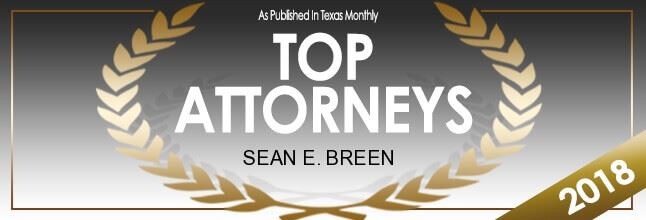Austin Traumatic Brain Injury Lawyers
Fighting for Your Compensation After a Head Injury
Have you or someone you love suffered a traumatic brain injury? You could have a right to monetary compensation.
At Howry Breen & Herman, we have been helping clients throughout Austin, Georgetown, and the surrounding areas in Texas since 1995. We understand the complexities involved in these types of cases and are prepared to aggressively advocate for you.
What to Do if Your Loved One Suffered a Traumatic Injury
Sadly, head injuries are one of the most common types of catastrophic injuries. Head and brain injuries have serious, lifelong consequences for both victims and their families. In many cases, they can lead to permanent disability and damage. If you or a loved one suffered a brain injury as a result of someone else’s negligence, our firm can help.
As soon as a medical professional delivers a diagnosis, it’s important that you contact an experienced brain injury lawyer in Austin who can help you understand your legal rights.
To learn more about brain injury cases and how our firm can help you with your claim, contact us online or by phone at (512) 430-4844 and schedule a free consultation.
What is a Traumatic Brain Injury?
A traumatic brain injury (TBI) is a type of injury that occurs when there is a sudden and violent trauma to the head, which results in damage to the brain. TBIs can vary in severity, from mild to severe, and can lead to a wide range of physical, cognitive, and emotional symptoms.
The severity of a TBI is typically classified as:
- Mild TBI (Concussion): This is the least severe type and is often characterized by a temporary alteration in mental status or consciousness. Symptoms can include confusion, headache, dizziness, and memory problems.
- Moderate TBI: Moderate TBIs involve a more significant injury to the brain and can lead to more severe and persistent symptoms, such as prolonged loss of consciousness, amnesia, and cognitive deficits.
- Severe TBI: Severe TBIs are life-threatening and result in extended unconsciousness, profound amnesia, and significant cognitive and physical impairment.
Common causes of traumatic brain injuries include:
- Falls: Falls are one of the leading causes of TBIs, especially among young children and the elderly. Falling from heights, slipping, or tripping can result in head injuries.
- Motor Vehicle Accidents: Car accidents, motorcycle accidents, and pedestrian accidents can all lead to TBIs, as the force of impact can cause the brain to collide with the skull or experience rapid acceleration-deceleration injuries.
- Sports and Recreation: Contact sports like football, soccer, and hockey, as well as activities like cycling and skateboarding, can result in TBIs if there is a blow to the head or a collision with another player or object.
- Assaults and Violence: Physical altercations, assaults, and acts of violence can result in TBIs when there are direct blows to the head.
- Blast Injuries: Military personnel and individuals in proximity to explosions can suffer TBIs due to the shockwaves produced by explosive devices.
- Penetrating Injuries: Objects like bullets or sharp projectiles that penetrate the skull can directly damage the brain.
- Shaken Baby Syndrome: Infants can sustain TBIs when they are shaken violently, leading to severe brain damage.
Types of Traumatic Brain Injuries
There are several different types of brain injuries, ranging in severity from mild to moderate to severe. However, just because a brain injury is categorized as “mild” does not mean that it should not be treated seriously.
All brain injuries have the potential to have lasting effects on the victim. If you suffered any type of brain injury, it is crucial that you seek medical treatment as soon as possible.
Several of the most common types of brain injuries include:
- Concussions: Generally considered by some to be relatively mild, concussions occur when there is excessive shaking, sudden movement, or direct impact to the head and they can indicate serious brain injury. Though concussions are not always visibly detectable with imaging tests, they should nevertheless be treated seriously. Don't be fooled by the fact that they're closed head injuries. Multiple concussions are particularly serious. Symptoms of concussion include headaches, memory problems, inability to concentrate, and disorientation.
- Contusions: A brain contusion is essential a bruise that occurs on the brain as a result of broken and/or leaking blood vessels. Brain contusions can occur when there is a direct impact to the head or when the head is moved violently so as to cause the brain to hit the side of the skull. Much like concussions, contusions can range from minor to severe. Symptoms of a brain contusion include loss of consciousness, fatigue, agitation, confusion, or distress.
- Penetrating Injuries: A penetrating brain injury, or open head injury, occurs when a foreign object penetrates the skull. When this happens, the foreign object, along with skull fragments and other debris can make contact with the brain, causing extensive damage. Penetrating brain injuries are incredibly serious and require immediate medical attention.
- Anoxic Injuries: When the oxygen supply is cut off from the brain, an individual may experience an anoxic brain injury. Even as little as four minutes without oxygen can cause brain cells to die, resulting in permanent and often irreversible brain damage. Anoxic injuries can occur when a person’s oxygen supply is cut off or when the blood does not carry enough oxygen to the brain. This might occur as a result of drowning, carbon monoxide poisoning, or suffocation.
- Skull Fracture: While not a brain injury per se, a skull fracture can often be associated with a TBI, as it indicates a significant force applied to the head. A fractured skull can sometimes cause brain damage if bone fragments press against the brain.
- Hematoma: A hematoma is a collection of blood outside the blood vessels. In the context of a TBI, it can occur within the brain tissue (intraparenchymal hematoma), between the brain and the dura mater (subdural hematoma), or between the dura mater and the skull (epidural hematoma). Hematomas can compress brain tissue and increase intracranial pressure, which can be life-threatening.
- Coup-Contrecoup Injury: This type of TBI occurs when the head sustains a blow that causes the brain to move within the skull. The initial impact site (coup) and the opposite side of the brain where the brain rebounds (contrecoup) can both be injured. This type of injury often involves contusions and can result in widespread brain damage.
Traumatic brain injuries require both immediate and ongoing medical treatment. The recovery process is often slow and incredibly costly with medical bills sometimes amounting to millions of dollars. For victims and their families, this alone is incredibly stressful—not to mention the stress of learning to live with a catastrophic injury.
What are Treatments for Traumatic Brain Injuries?
Fortunately, many traumatic brain injuries are treatable.
While some victims may never fully return to their previous normal lives, others may be able to make a partial or full recovery. Even in instances where full recovery is not possible, traumatic brain injury victims are often still able to lead happy lives.
Common treatments for traumatic brain injuries include:
- Emergency treatment to stop or reduce damage
- Medication to address various complications, including seizures
- Surgery to stop bleeding, repair the skull, or remove hematomas
- Cognitive and/or occupational rehabilitation therapy
- Speech and language pathology treatment
Preventing Further Harm After a Brain Injury
You should always see a medical professional as soon as possible after being in an accident that might have caused you to suffer a head or brain injury.
Symptoms might begin as mild as a headache but indicate a severe problem like a brain hemorrhage. Only through a comprehensive medical evaluation can you be certain of the extent of your injuries. A same-day diagnosis also allows you to start receiving treatments or aftercare instructions that help prevent further harm from happening.
Seeing a doctor soon after an accident is not just good for your health, though. It is also good for your traumatic brain injury claim.
Protecting Your Right to Compensation After a TBI
If you have medical records created shortly after your accident, then it is easier for our Austin traumatic brain injury attorneys to establish when you suffered your injuries and why.
Otherwise, the opposition will use the gap between your accident and your first medical treatment as an excuse to say your brain injury likely happened during that unrecorded time.

How Much Is a Traumatic Brain Injury Worth?
Just like any other personal injury case, the value of a traumatic brain injury claim depends on numerous factors. That being said, because these are catastrophic injuries, they tend to result in more significant damages for victims. This means that TBI cases are generally higher in value than other types of claims involving less severe injuries.
Types of Damages Available in Brain Injury Claims
Although every case is different, most TBI cases are worth hundreds of thousands of dollars or more. This is largely due to the high costs associated with treating serious brain injuries, including expenses associated with:
- Ongoing treatments
- Rehabilitation
- Future care
TBIs also result in significant physical and emotional hardships for victims and their families. Victims may be unable to return to work and earn a living for themselves or their loved ones; they may be no longer capable of enjoying activities they once did or even carrying out once-simple, everyday tasks. As such, the value of a TBI victim’s pain and suffering tends to be considerable compared to those who suffer other types of injuries.
One important element in determining how much your case could be worth is working with the right legal team. When it comes to maximizing your recovery, there is no substitute for experience and drive. At Howry, Breen & Herman, LLP, our Austin traumatic brain injury lawyers are prepared to utilize their resources and draw on years of experience to build a powerful case on your behalf.
What Changes a Brain Injury Claim’s Value?
A claim’s value is never set in stone. It can increase or decrease as the case advances, depending on what is uncovered.
Different factors that can change a claim’s value are:
- Liability: In a personal injury claim, liability is the technical term for someone’s “fault” in an accident. Someone who is completely to blame for an accident is 100% liable, someone who is not to blame at all is 0% liable, and someone who is partially to blame will be 1% to 99% liable. The more liability you are assigned for your brain injury, the less money you can recover from the defendant(s).
- Injury severity: The severity of your injuries will impact the overall value of your claim. Typically, an injury that is catastrophic requires far more medical care to treat. It will also keep the injured out of work for a long time. As such, medical costs and lost wages will be steeper in a serious injury case compared to another case with a mild or moderate injury involved.
- Prior medical history: Your medical history can influence the value of your brain injury case because preexisting injuries must be taken into consideration. If you already suffered a head injury in the past, for example, then the defendant’s liability for your most recent head injury could be reduced. It varies from case to case, though, so you should let our attorneys review your medical history to see how it might impact your claim or lawsuit.
- Criminal elements: Did the person who caused your brain injury do so because they were committing a crime, like driving drunk? If so, then the court might approve punitive damages to further penalize them. Punitive damages are usually paid by the defendant directly, so they might not be significant. But every dollar counts when you are seeking a sense of justice and closure.
- Courtroom history: The outcome of your case and its value will be influenced by which court tries it. Even though all courts and judges are supposed to be purely unbiased, it is impossible for anyone to act completely free of their own predeterminations. As such, many courts gain a reputation for ruling in one way or another – or awarding large or small sums – when cases are close.
- Insurance caps: The amount of money that you can get from the defendant can be capped by the relevant insurance policies. For example, if you suffered a brain injury because you slipped on someone else’s property, and that person has a $100,000 bodily injury limit on their homeowner’s insurance policy, then you can expect to be offered a settlement valued at $100,000 or less. To get more, you will have to take them to court, so it is recommended you work with an attorney immediately.
Get a TBI Attorney’s Help
Living with a traumatic brain injury can make every task each day a painful challenge. Dealing with all the details of a brain injury claim is not something that you should do on your own when you should be resting.
Straining yourself with the details and added stress to your life could potentially worsen your injury. Furthermore, a responding insurance company might try to argue that your TBI cannot be “that bad” if you are still capable of working on a claim by yourself.
To give yourself the chance to rest that you deserve and to limit the arguments the defense can use against your claim, you should leave your claim up to Howry, Breen & Herman, LLP. Our Austin brain injury attorneys have a long history of taking complex, high-value cases and bringing them to success for our clients, both in and out of court. It would be our honor to see if we can help you with your TBI case, too.
We are dedicated to helping you navigate the complexities of brain injury cases, and here are some of the advantages of working with us:
- Expertise and Experience: Our experienced brain injury lawyers have a deep understanding of the medical, legal, and insurance aspects of traumatic brain injury cases. We know how to build a strong case to secure the compensation you deserve.
- Investigation and Gathering Evidence: We have the resources and skills to conduct a thorough investigation into the circumstances surrounding the brain injury. This includes collecting medical records, consulting with experts, and interviewing witnesses to establish liability.
- Determining Damages: We understand the long-term consequences of brain injuries, and we work to calculate the full extent of your damages. This includes medical expenses, rehabilitation costs, lost wages, pain and suffering, and more.
- Negotiating with Insurance Companies: Dealing with insurance companies can be a daunting task, but we handle these negotiations on your behalf. Our lawyers are skilled in negotiating with insurance providers to ensure you receive a fair settlement.
- Litigation Skills: If necessary, we are fully prepared to take your case to court. Our experienced litigators will represent your interests and fight for your rights in the courtroom.
- Emotional Support: Brain injuries can be emotionally and mentally challenging. We offer compassionate and empathetic support throughout the legal process, helping you and your family cope with the personal challenges that arise from the injury.
- Accessibility and Communication: We maintain open lines of communication with our clients, keeping you informed about the progress of your case and promptly addressing your questions and concerns.
- Proven Track Record: Howry, Breen & Herman, LLP has a strong track record of successfully handling brain injury cases and securing substantial settlements for our clients. You can trust in our proven ability to advocate for you effectively.
- Peace of Mind: By enlisting our services, you can focus on your recovery and well-being while we handle the legal complexities of your case, ensuring that your rights are protected and that you receive fair compensation.
Reach out to an Austin brain injury lawyer today at(512) 430-4844 to get started with your FREE case evaluation.

.png)





















